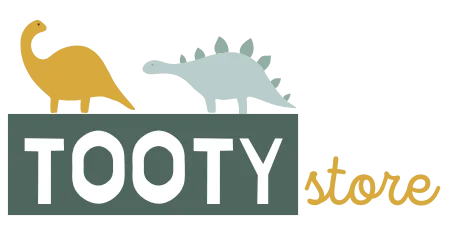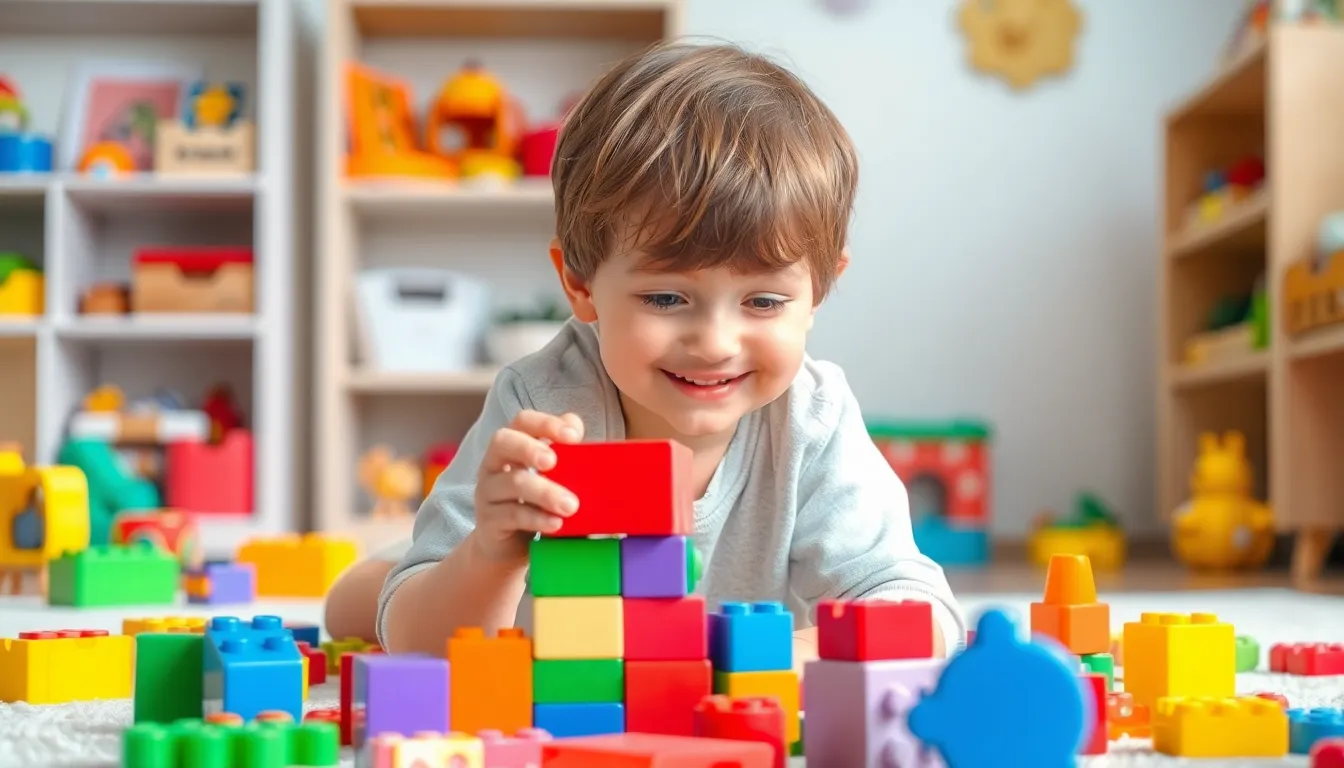Table of Contents
ToggleIn a world where screens often steal the spotlight, educational kids’ toys are the unsung heroes of childhood development. These magical creations don’t just entertain; they spark curiosity and foster creativity, all while keeping little minds engaged. Imagine a toy that not only makes your child giggle but also teaches them the ABCs or how to build a rocket. Sounds like a win-win, right?
Parents know that finding the right balance between fun and learning can feel like searching for a unicorn. But educational toys are here to save the day, blending laughter with lessons in a way that even the pickiest of kids can’t resist. Dive into the delightful world of educational toys that promise to turn playtime into brain-boosting adventures. After all, who said learning can’t be a blast?
What Are Educational Kids Toys?
Educational kids’ toys promote learning through play. They stimulate young minds by focusing on essential skills such as problem-solving, critical thinking, and creativity. Various types of toys fall into this category, including puzzles, building blocks, and science kits.
Puzzles encourage cognitive development by enhancing spatial awareness and memory retention. Building blocks foster creativity while teaching basic engineering principles. Science kits enable hands-on experiments, igniting interest in STEM fields.
Parents often seek these toys for their benefits beyond mere entertainment. They engage children in an interactive manner that traditional toys may not achieve. By combining fun with educational content, these toys make learning enjoyable.
Research indicates that play significantly impacts a child’s cognitive and social development. Engaging with educational toys improves fine motor skills and promotes teamwork during group activities. Many educators advocate incorporating these toys into learning environments.
Beyond academics, these toys help children develop emotional intelligence, such as patience, resilience, and empathy. They often involve collaboration with peers, highlighting the importance of social interactions. Emotional skills gained from play can result in better relationships in the future.
Educational kids’ toys are more than just tools for amusement. They serve as effective resources for fostering a child’s growth in multiple areas, making playtime a valuable experience. Combining education with enjoyment, these toys offer a pathway to lifelong learning.
Benefits of Educational Kids Toys

Educational kids’ toys provide numerous advantages essential for a child’s growth and development. They engage children in play that teaches valuable skills while keeping their interest alive.
Cognitive Development
Cognitive development improves through the use of educational toys that challenge young minds. Puzzles stimulate problem-solving abilities, while building blocks encourage spatial awareness and creativity. Research shows children who engage with science kits grasp scientific concepts more readily. Each of these toys enhances memory retention and boosts critical thinking skills. Engaging with educational toys early on sets a foundation for later academic success. Children develop analytical skills, making learning fun and active rather than passive.
Social Skills Enhancement
Social skills benefit significantly from interactions facilitated by educational toys. Children learn to share and cooperate when playing with multi-player games or collaborative construction sets. Group activities promote teamwork, teaching the value of working together toward common goals. Engaging with peers during playtime fosters effective communication skills as they express ideas and negotiate roles. Playing with educational toys encourages emotional intelligence, as it helps children manage their feelings and understand others’ emotions. Each interaction builds strong social foundations necessary for future relationships.
Types of Educational Kids Toys
Educational kids’ toys come in various categories, each designed to support specific developmental goals. These categories enhance learning through an engaging and interactive approach.
STEM Toys
STEM toys focus on science, technology, engineering, and mathematics concepts. These toys encourage children to explore, experiment, and innovate. Robotics kits allow kids to build and program their devices, fostering critical thinking and creativity. Coding games introduce basic programming concepts in an entertaining manner. Engaging with these toys develops problem-solving skills and spatial awareness, providing a strong foundation for future academic pursuits.
Arts and Crafts Toys
Arts and crafts toys promote creativity and self-expression. These toys include supplies for drawing, painting, and crafting. Many kits encourage children to create their projects, enhancing fine motor skills and hand-eye coordination. Engaging in artistic activities stimulates imagination while allowing kids to explore different mediums. Social interactions often arise during collaborative art projects, facilitating teamwork and communication skills.
Factors to Consider When Choosing Educational Kids Toys
Selecting educational kids’ toys requires careful consideration of various factors that ensure both safety and developmental benefits.
Age Appropriateness
Age appropriateness plays a significant role in choosing educational toys. Different age groups benefit from specific types of toys that match their developmental stages. Toys for infants focus on sensory exploration, while toddlers gain from toys that promote basic problem-solving skills. Preschoolers require more complex toys, like puzzles or simple science kits, to challenge their growing minds. Age-appropriate toys not only keep children engaged but also support their learning processes. Always check age recommendations on packaging, as they offer guidance to ensure that toys meet the developmental needs of your child.
Safety Standards
Safety standards are crucial when selecting educational kids’ toys. Non-toxic materials should be a priority, ensuring that toys are safe for children to handle and play with. Look for certifications from recognized organizations, such as the American Society for Testing and Materials (ASTM) and the Consumer Product Safety Commission (CPSC). These certifications indicate that toys meet rigorous safety guidelines. Small parts and choking hazards must also be taken into account, especially for younger children. Ensuring toys adhere to safety standards protects children while providing a worry-free learning environment.
Educational kids’ toys offer a unique blend of fun and learning that can significantly enhance a child’s development. By choosing toys that stimulate curiosity and creativity, parents can create an enriching environment that promotes essential skills. These toys not only engage children’s minds but also foster social interactions and emotional intelligence.
Investing in educational toys can set the stage for lifelong learning and success. With a variety of options available, parents can find the perfect toys that align with their child’s interests and developmental needs. Ultimately, the right educational toys can transform playtime into a valuable opportunity for growth and exploration.




